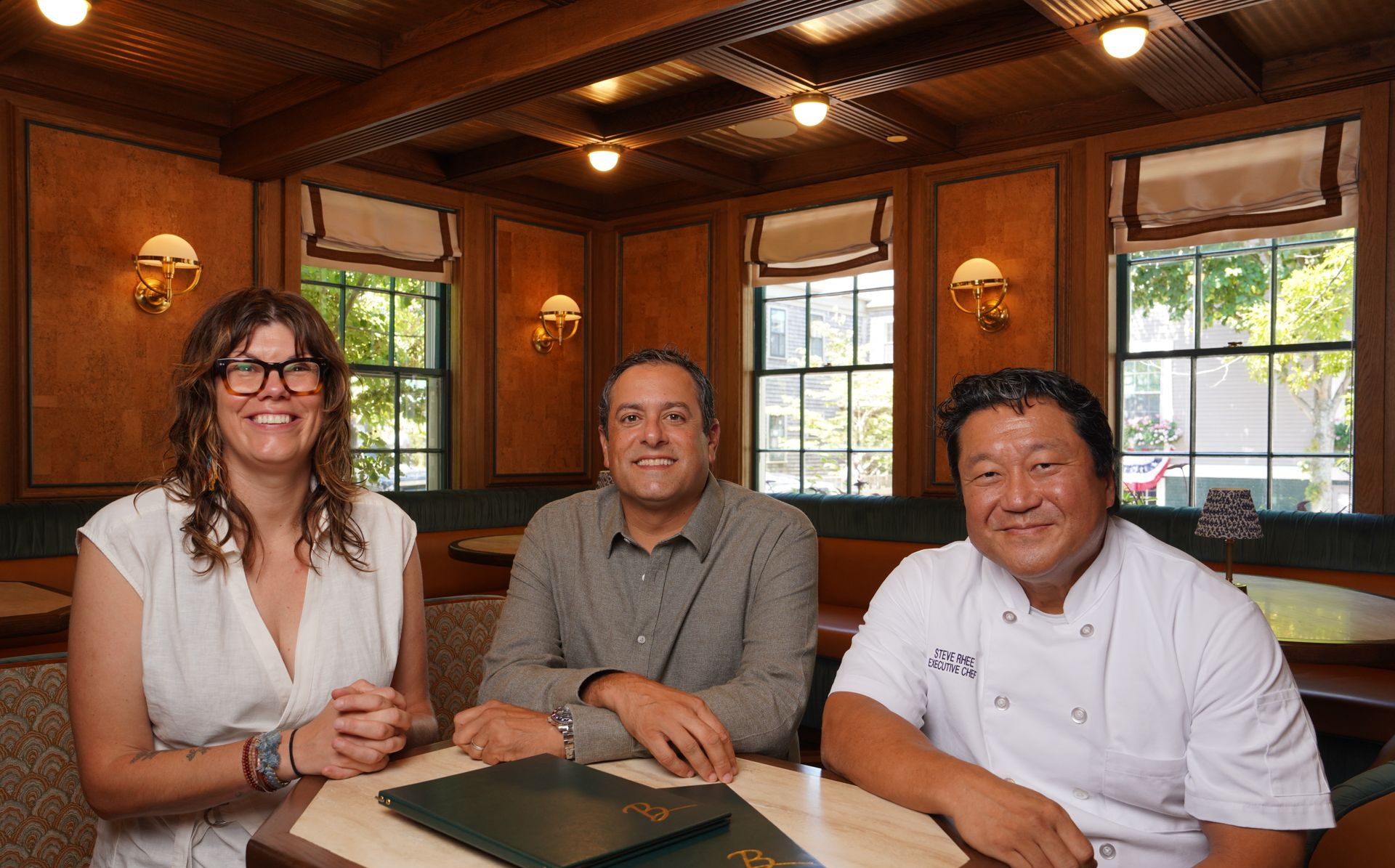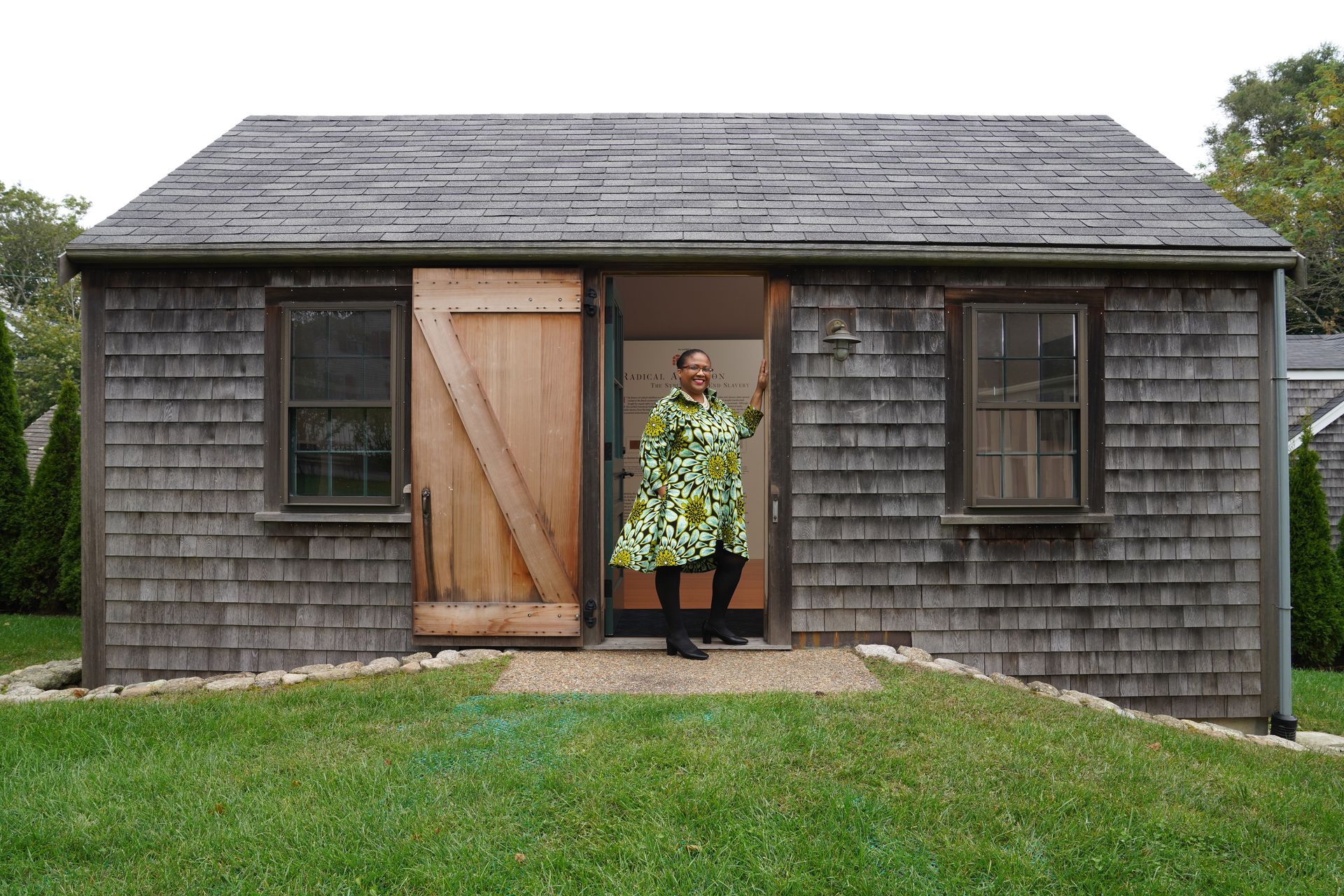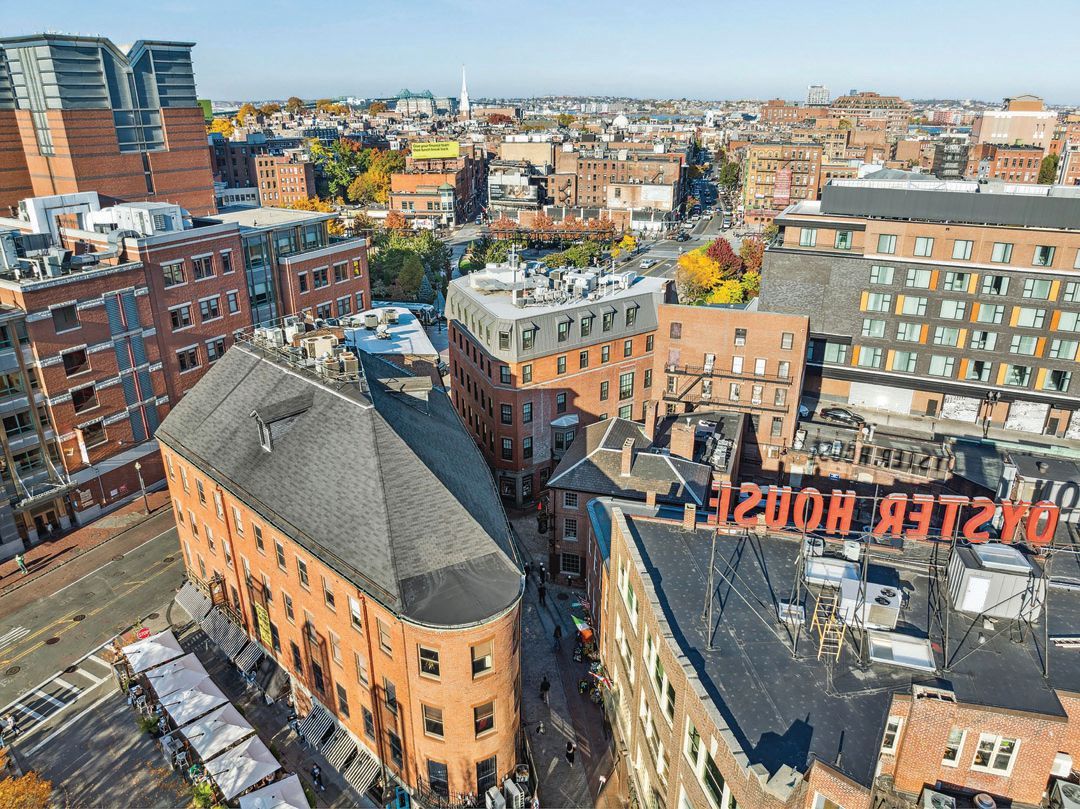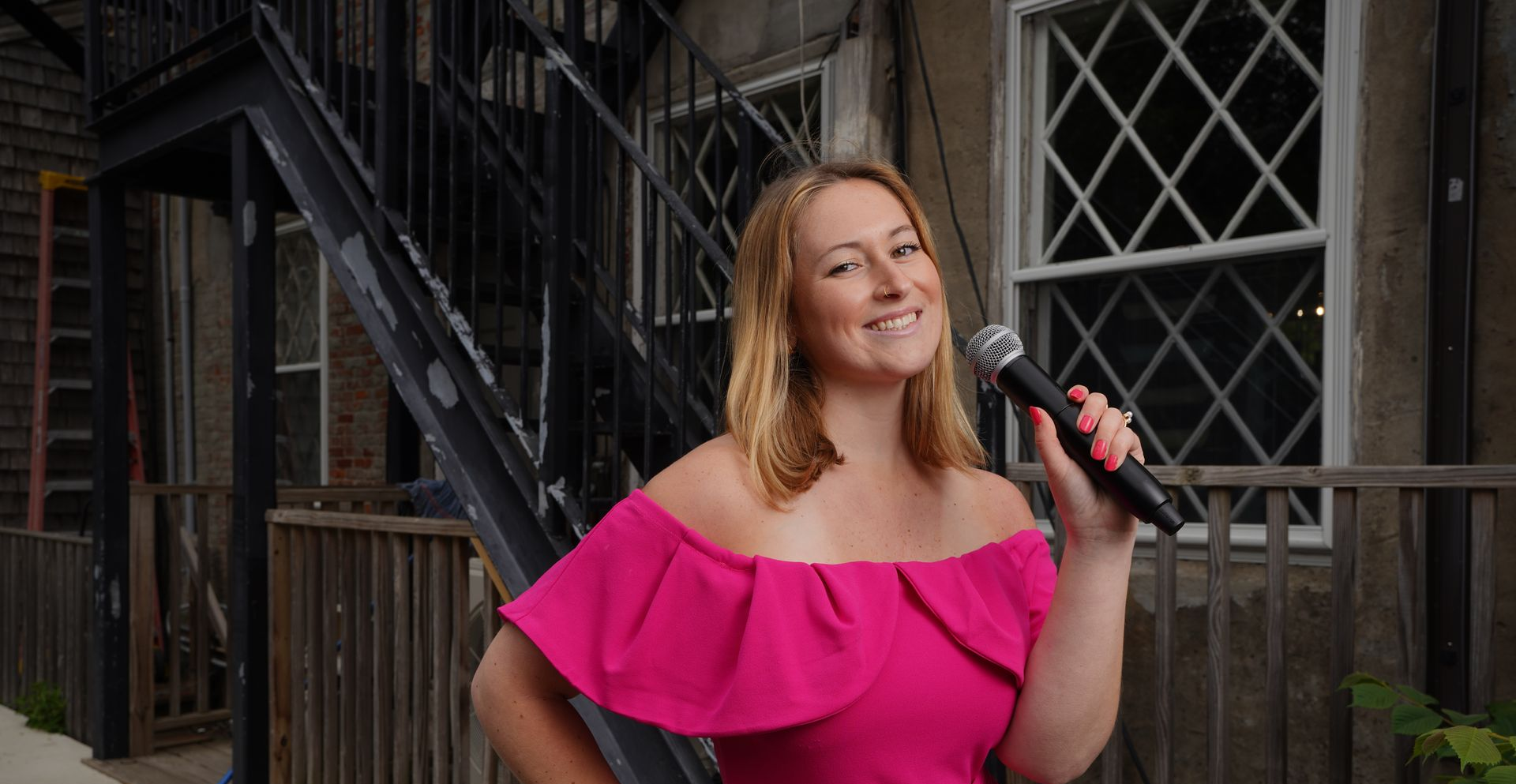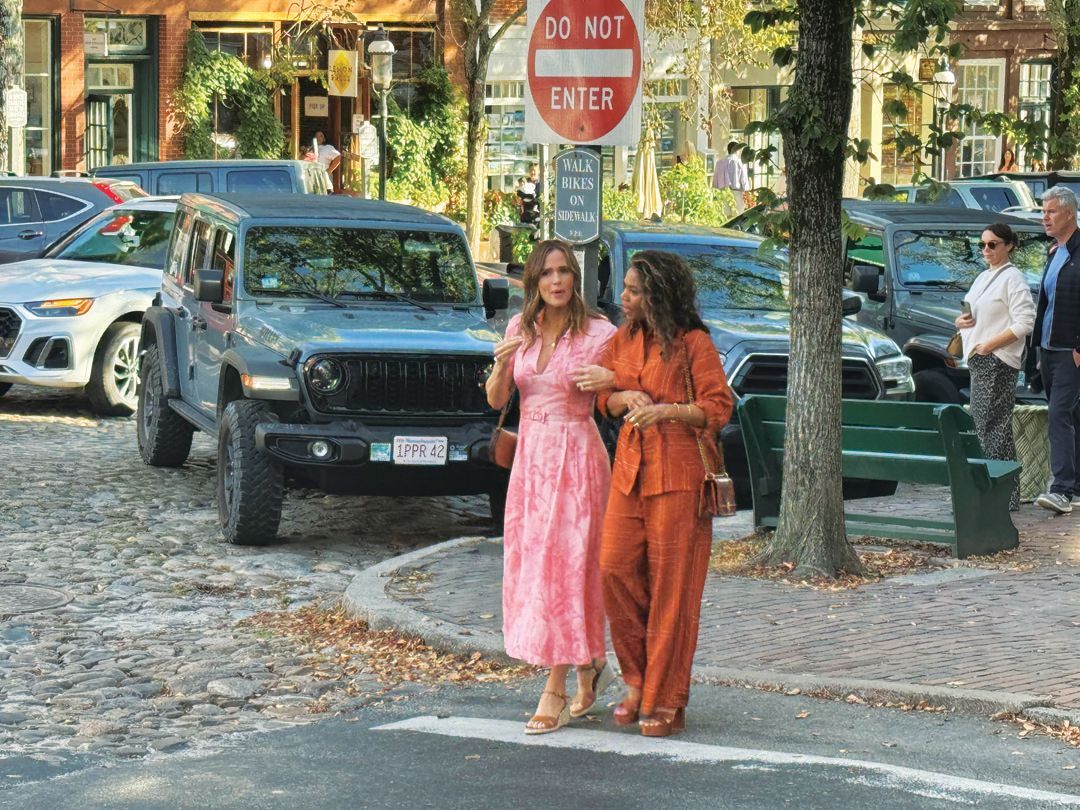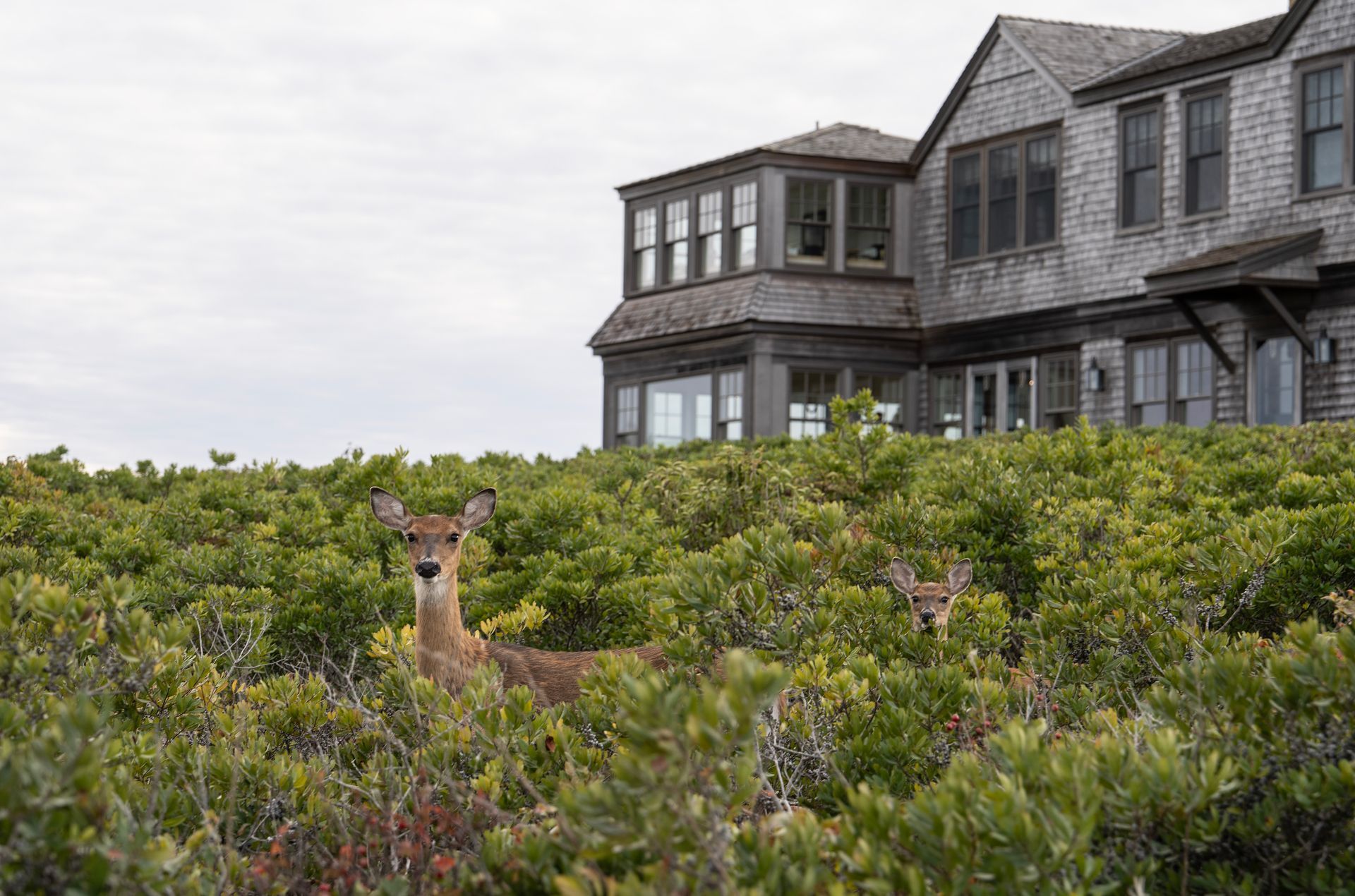PRESSING MATTERS
A conversation with CNN’s Chief White House Correspondent Kaitlan Collins.
story by Robert Cocuzzo
At just twenty-eight years old, Kaitlan Collins became the youngest chief White House correspondent in the history of CNN. Her promotion in January 2021 came after four years of covering the Trump White House, during which time she gained a reputation for not only targeting pointed questions at the commander- in-chief, but often becoming a target herself in the process. Though constantly on the move—checking in with sources, reporting the events of the White House, attending press briefings and traveling with the president aboard Air Force One—Collins has found reprieve on Nantucket. While vacationing on the island during this past Memorial Day weekend, Collins spoke to
N Magazine about her skyrocketing career at CNN, the future of cable news and what Wolf Blitzer is actually like when the cameras turn off.
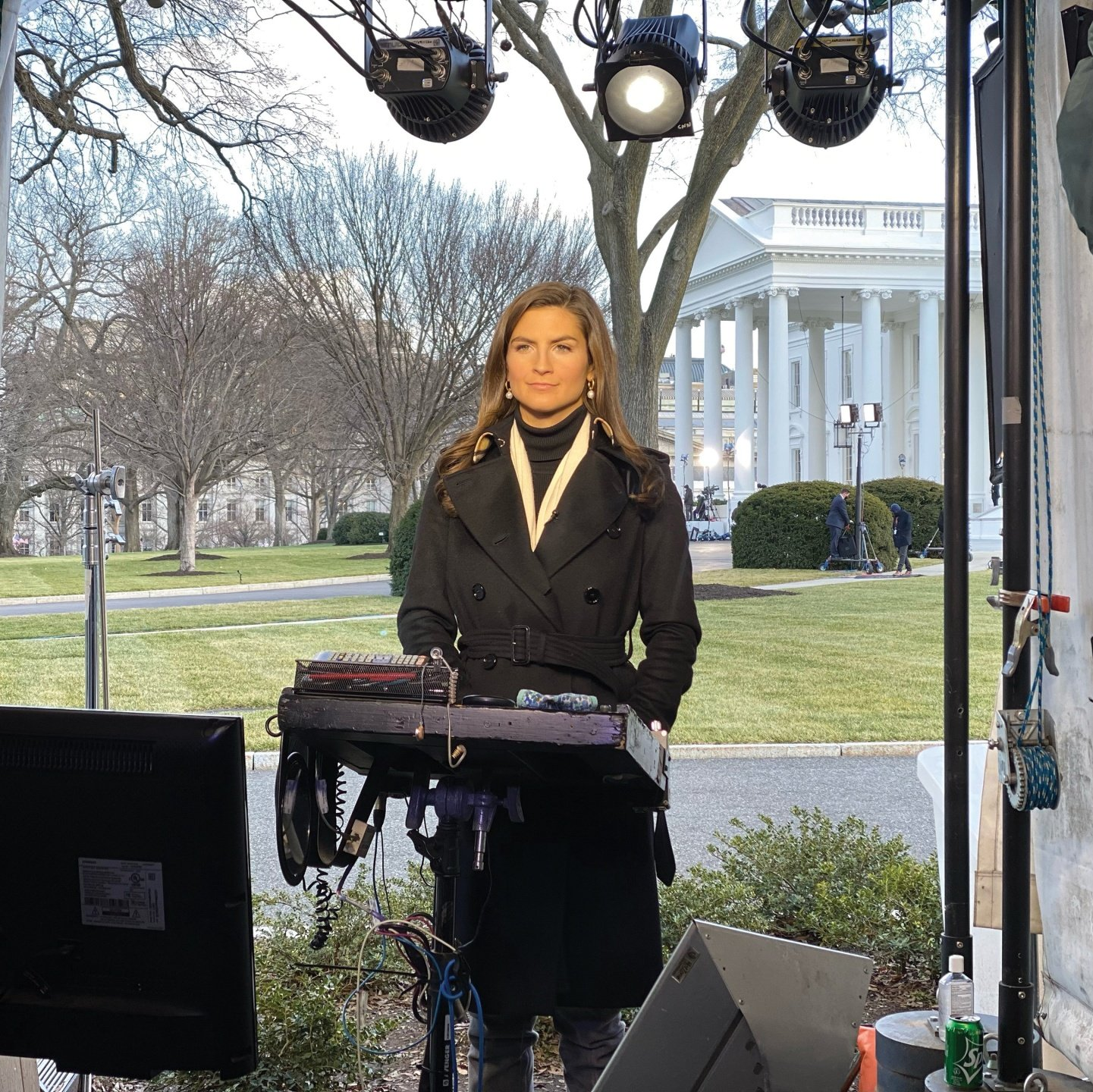
While covering the Trump administration, you gained a reputation for consistently asking the president some pretty tough questions. Knowing his base and how fervent it can be, did you ever worry about your own safety?
I never worried about my own safety, but there were times where you realized that other people were worried about it. When we went to Trump rallies, we would have to take security with us because there were those moments during the rallies where we were technically in a cordoned-off area for the press, but the rally goers were right there. Always during those moments in his speeches when he would do the “CNN sucks” chants, or just be critical of the media at large, the crowd would all turn to us and start yelling and chanting. You’re at the center of all of these people’s attention. Sometimes they were huge rallies with ten thousand, twenty thousand people. So it was a little unsettling in that sense.
I’m sure you received a lot of inbound messages on social media. How did you compartmentalize that harassment from just trying to do your job?
Social media was the worst. When you are in the media and you are this prominent figure, people think that they can speak to you however they want. They think it’s anonymous, or that it doesn’t bother you, or that you don’t pay attention. Of course, everyone sees those comments or the emails or the tweets or Instagram messages. It was something I really had to learn to deal with. Because I’d never experienced it until I was in this position. I really just had to develop a tough skin, be able to ignore the comments and understand that regardless of what people are tweeting or criticizing, it’s all politics. I also do think being a woman, being in the media, being on television, only compounded the issue and made it worse.
What’s going through your mind when you’re preparing to ask a question to the most powerful person on the planet?
Everyone gets a little nervous. You understand that at that moment you’re asking the president of the United States a question. The best way to go into that is to be just fully prepared and to know what you’re talking about, know your subject area, have a few follow-up questions that you just know off the top of your head. Because sometimes in these moments with Trump, it wasn’t just that you were asking questions and seeking answers; often he would turn it back around on you and cause an argument to prove his claim that the media treated him unfairly.
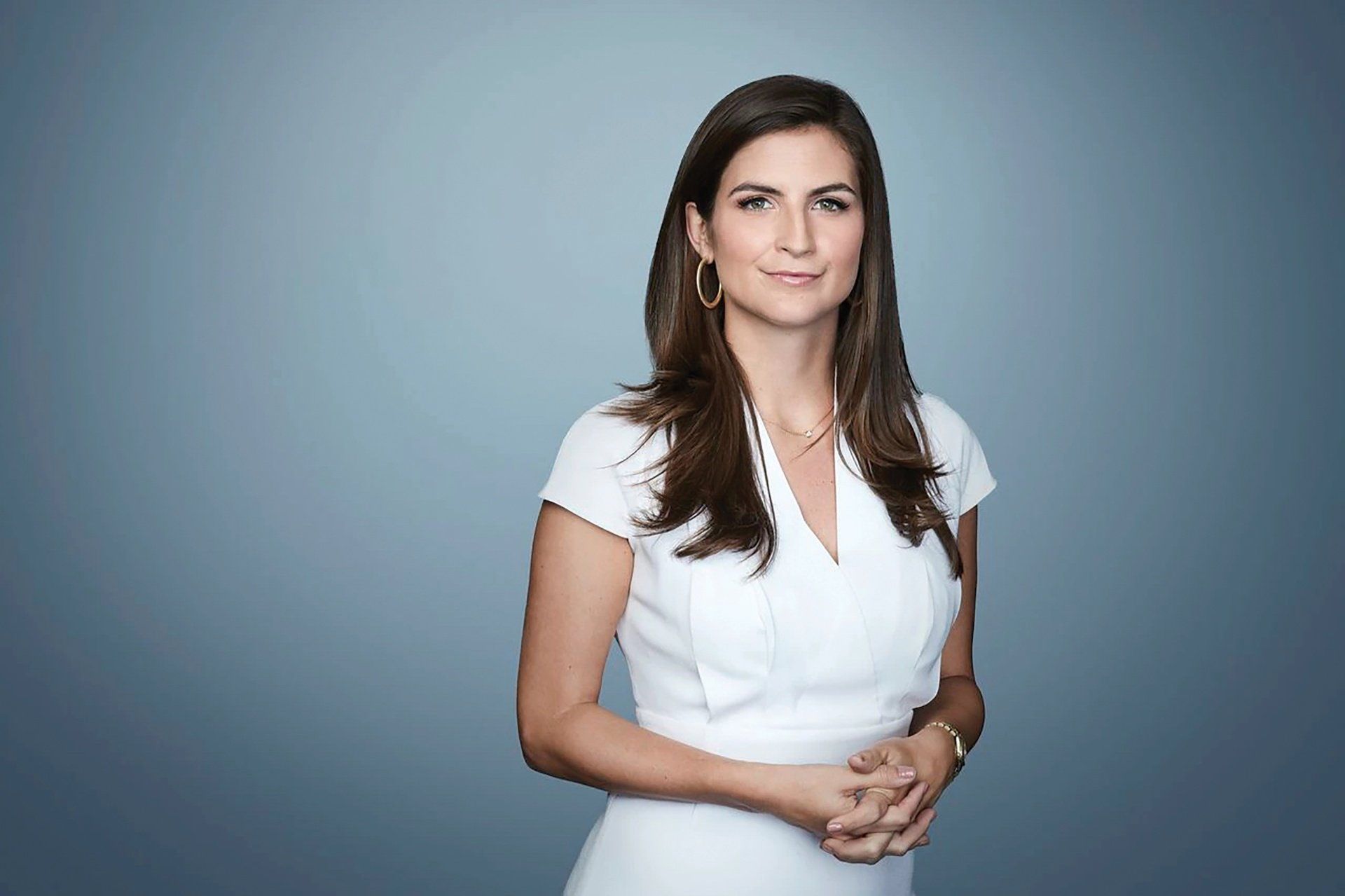
One of those interactions with the president resulted in you being “banned” from a White House event. What was it like being thrust into the center of the story like that?
It was uncomfortable because it was the first time that had really happened to me. It was also really unexpected. When they banned me, I actually had no idea that my questions from earlier in the day had irritated him so much, so I was caught off guard by it. I remember thinking, How should I handle this? I called our bureau chief and my editor because we were always very hesitant about making ourselves the story. But they pointed out to me, “It’s not just about us. It was about a greater question of press access.” If they don’t like the questions you asked, don’t answer them. But to ban you for asking them, it’s such a really bad precedent. That’s why we felt it was important to say that publicly.
During that episode, you gained the support of the press corps, including those at Fox News. What is it like behind the scenes within the White House press pool? Is it competitive, divided along network lines, or is there camaraderie?
People have the misconception that it’s crazy competitive in the press corps, that it’s sharp elbows and no one’s friendly. Really, it’s not competitive; it’s camaraderie, because you go through the same things as these people every day. You’re in the briefing room, you’re waiting for the president, you’re covering the same issues. You’re going on the same foreign trips overseas. And it develops this bond between you because you’re all reporters. Yes, you’re naturally competitive because you want to get a scoop or the question that everyone wants to ask, but at the end of the day, it’s more camaraderie than competitiveness.
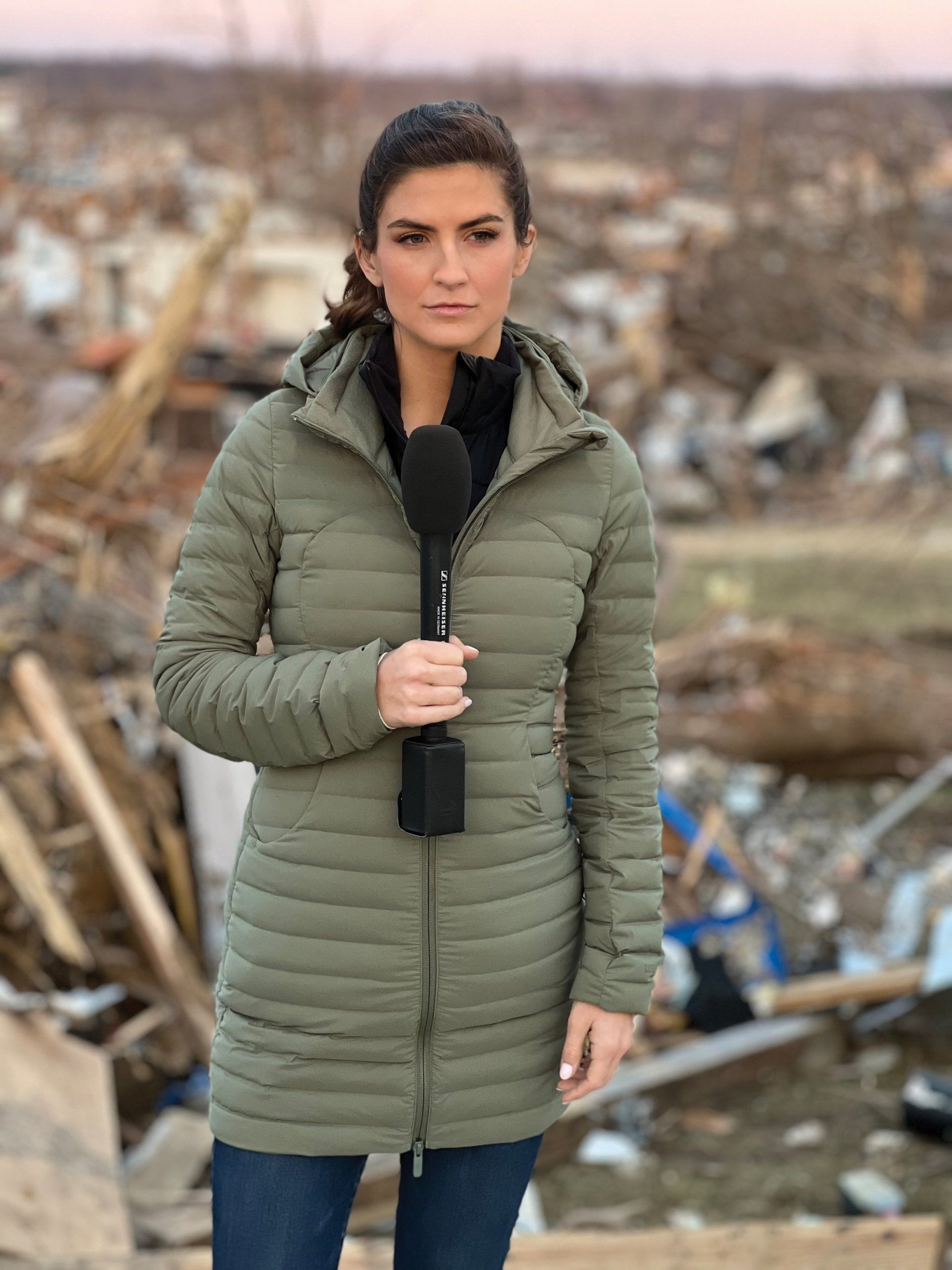
What’s it like traveling with the president on Air Force One?
It’s so overwhelming, but it’s so cool. You’re just sitting there thinking, I can’t believe this is my job. I’ll never forget the first time I went with President Trump on Air Force One. He was going to New York for a fundraiser. It was incredible. They had these little placards with your name on them when you sit down in your seat. The staff on Air Force One is amazing. But then we landed and took a helicopter to the Wall Street landing zone with the president of the United States. Then we got into the motorcade and were driving down the streets of New York where there’s no traffic. They blocked the streets off and we’re in the motorcade flying down Fifth Avenue going the wrong direction because there’s no traffic. There were all these crowds lining the streets to see the presidential motorcade. It’s something that no one else will ever experience. No one else is ever going to be in a car with no traffic going the wrong way down Fifth Avenue. And so it’s just really cool.
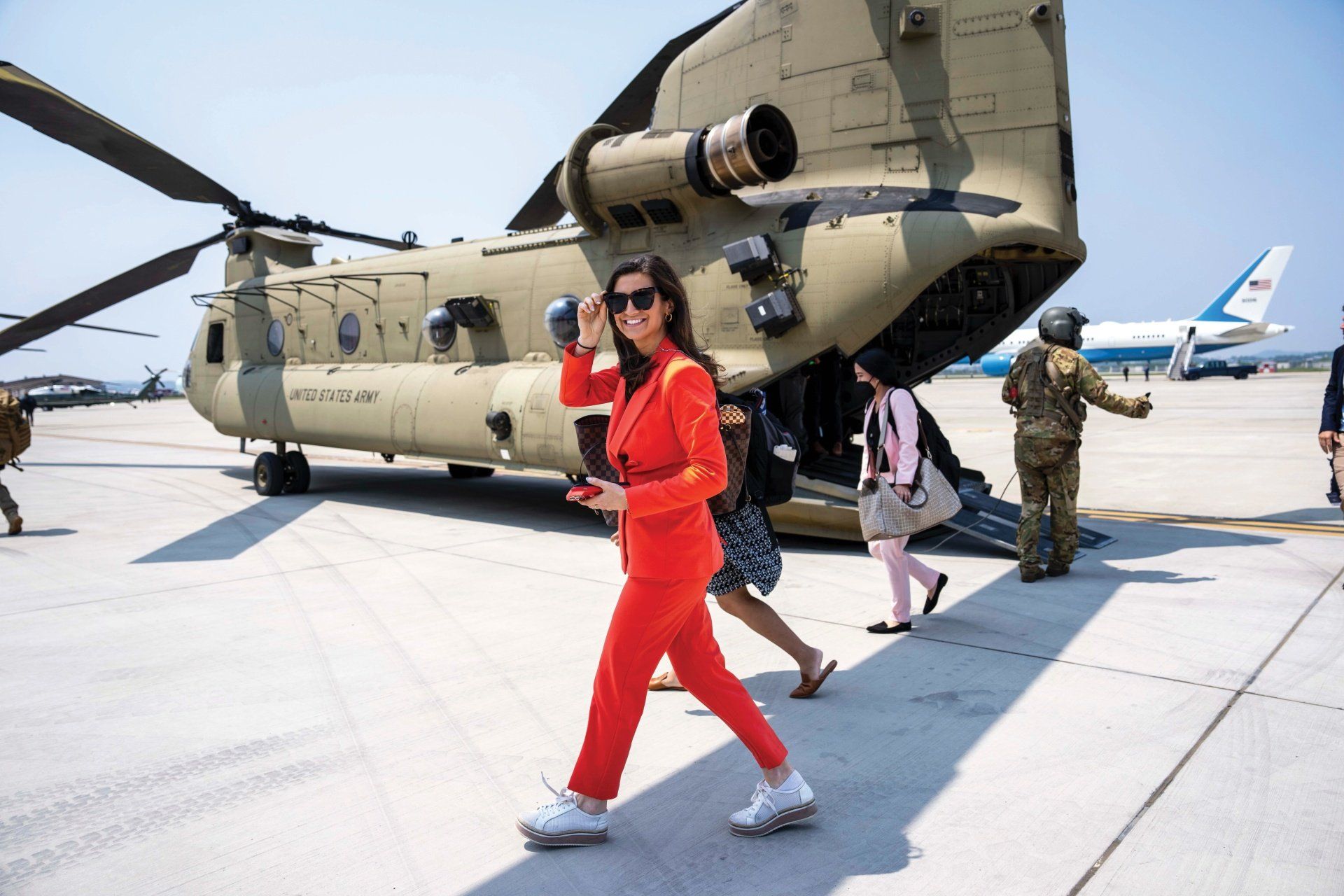
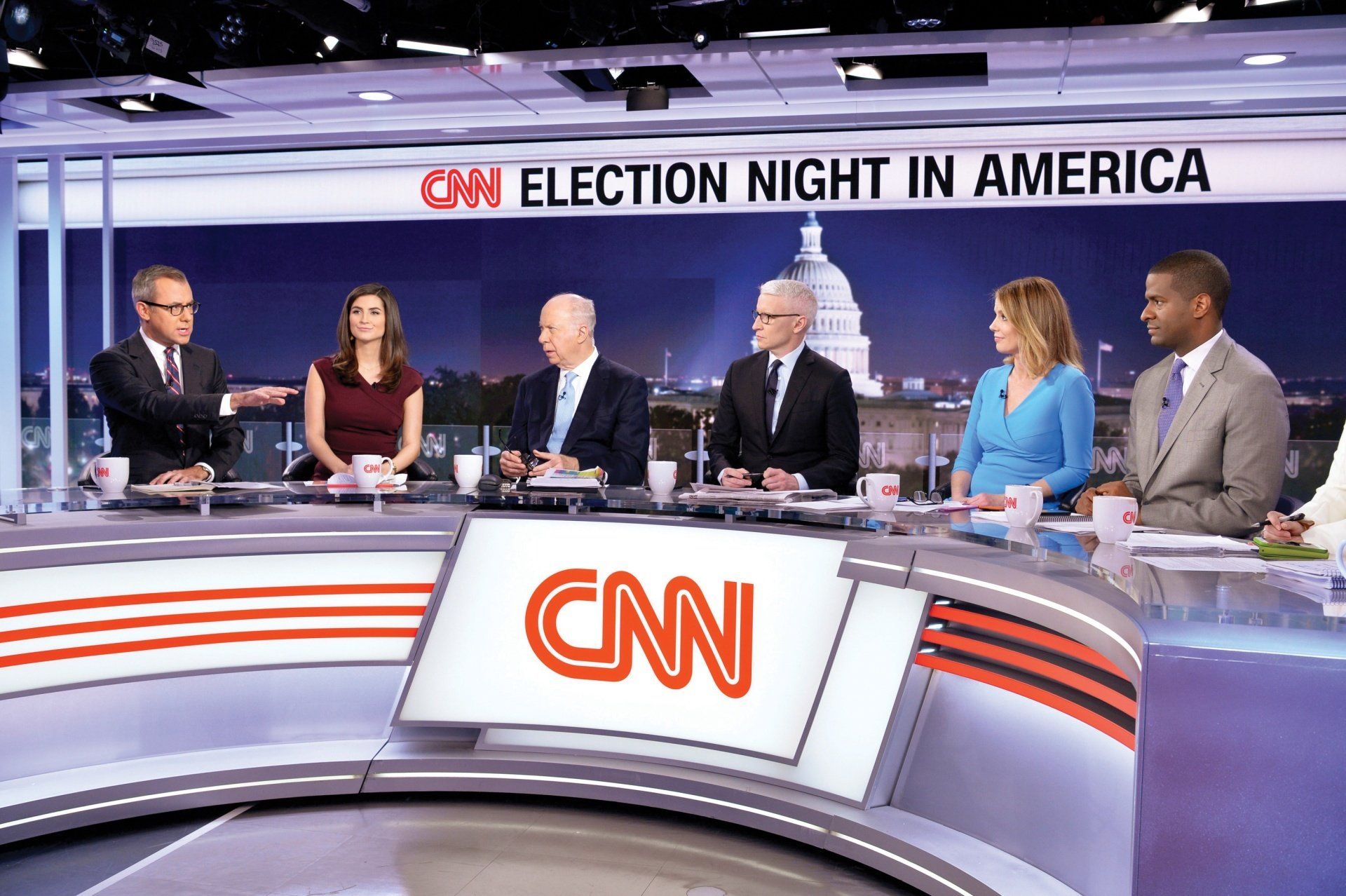
You had one particularly contentious interaction with Biden, after which he subsequently apologized to you personally. What have you learned about Biden from your interactions with him?
That was a really telling moment. I think that it shows that any president can get irritated with your questioning. I think it shows that you should have tough questions for any president, not just Trump, not just Biden; both presidents should face tough questions because of their office. But it did stand out that he apologized after that interaction. He didn’t need to apologize; he’s the president of the United States. I’m just asking questions that he can respond to however he chooses. But I do think it was nice that he apologized.
We think of the cable news landscape as aligned along the political spectrum, with Fox on the right, MSNBC on the left, and then CNN leaning somewhere to the left. Is there an effort within the ranks of CNN to move closer to the center and cast a bigger net for an audience? Or is it the nature of cable news to play to your base?
I can really only speak from my view, but I think it’s important to appeal to all audiences, not just certain people who vote one color on election day. I’m from the Deep South and I grew up around a lot of Republican voters, now Trump voters and Trump supporters. I still think it’s important for everyone to hear the news. Moments like what happened in Ukraine, moments like the COVID-19 pandemic, are moments where it is not a political story. It became political, obviously, but it’s not a political story because everyone has a vested interest in what’s happening. They want to be able to turn on the news and know that what they’re getting is from straightforward, credible anchors and reporters. And I think it’s really important to have that credibility with your audience, regardless of whether or not they always love everything you’re saying. That’s what I work for every day. I really want to strive to have that credibility. I think you just have to deliver the news, and
regardless of how the audience responds to it, the news is still the news and it doesn’t change because someone likes it or doesn’t like it, or turns the channel.
During times of crisis, whether it’s COVID or war in Ukraine, ratings on CNN soar. Some have called CNN the “Crisis News Network.” How does a network like that remain viable during “peace times”?
We didn’t just wake up and start covering Ukraine the day that Russia invaded. We’ve had this incredible team of reporters who have covered Ukraine for years, who have been on the ground since 2014. So when people do decide to watch CNN and see what’s going on, they’re seeing a team who has been working on this for years. Regardless of whether it’s a moment where everyone is tuning in and watching—whether it’s election night, Ukraine, the COVID-19 pandemic—your job is to do the work every single day.
You said earlier that CNN never wants to become the story, but there have been instances recently, such as the firing of Chris Cuomo or the resignation of CEO Jeff Zucker, where the network has become the story. What have you learned about CNN in going through those controversies?
Those moments exist, but they are so above most of the reporters’ pay grades that it really isn’t something that we focus on. You watch what’s going on when moments like that happen, but meanwhile, I still have to go to the press briefing that day, I still have to go see Biden at the Oval Office, I still have to deliver a report on Wolf Blitzer’s show at 6 p.m. about what’s been going on in the White House. I totally understand that there are those moments, but they’re so far above my pay grade that it is just not something that takes up a lot of oxygen.
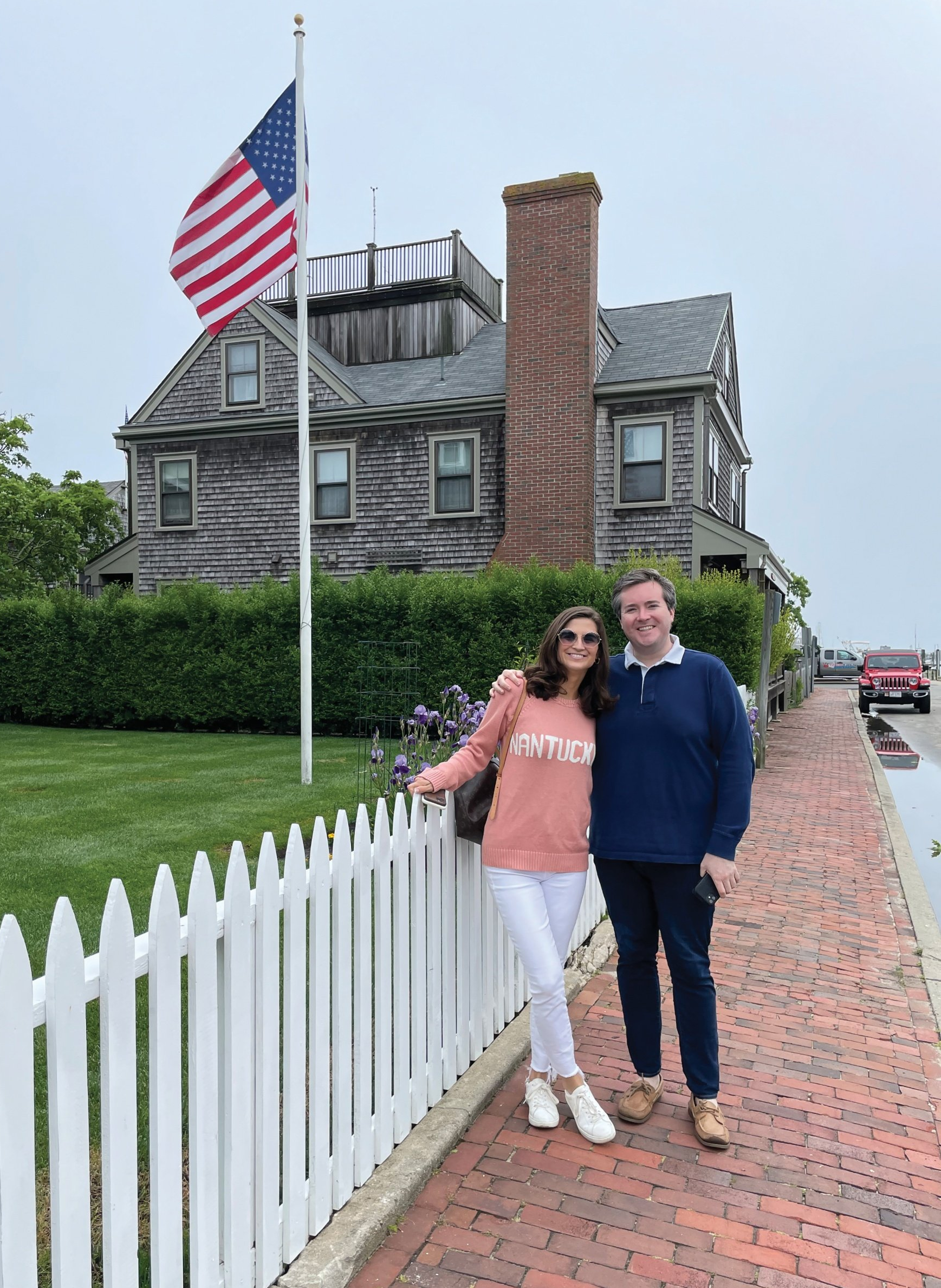
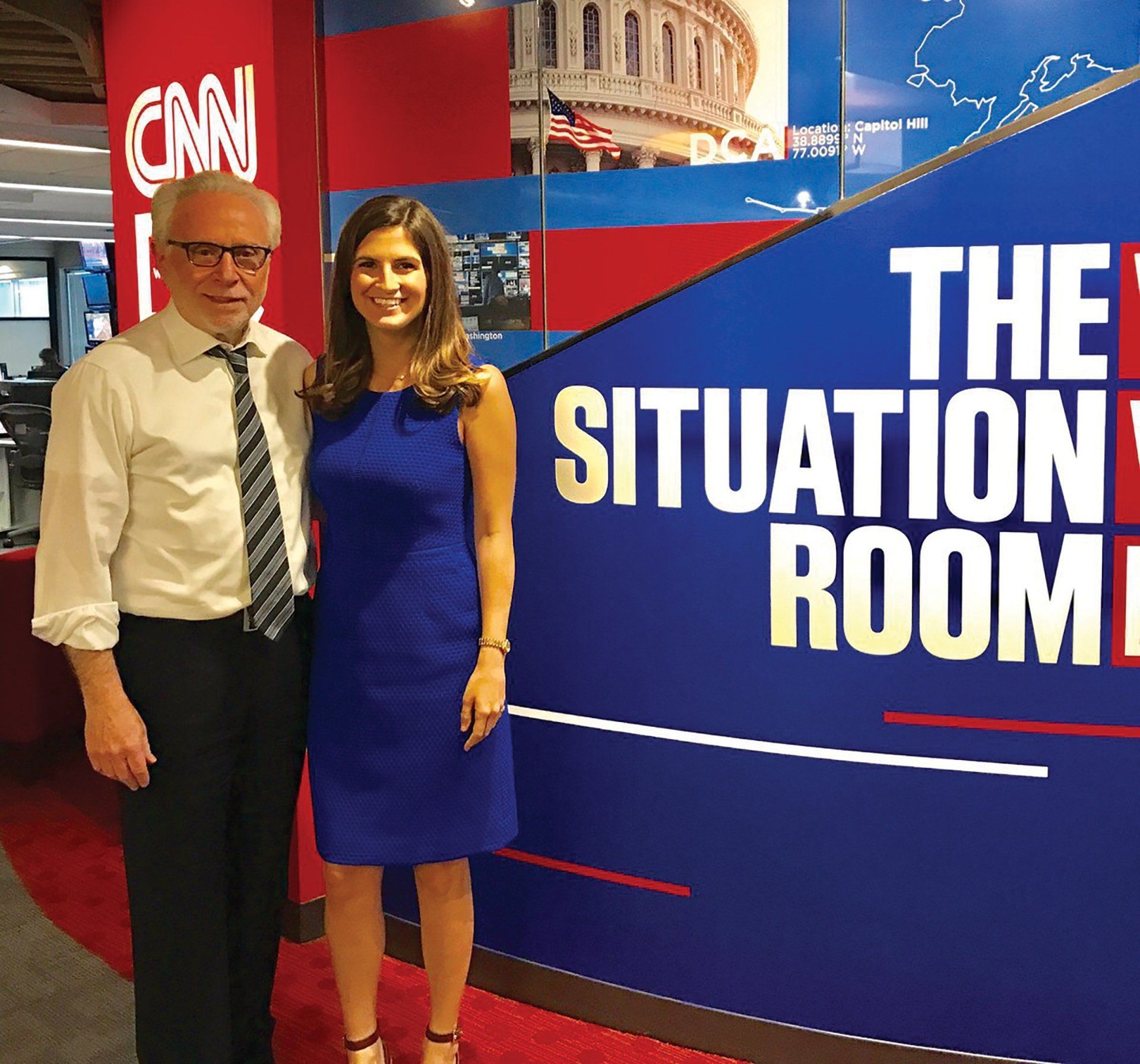
Every anchor at CNN has a mystique about them. Is there something that our readers would be surprised to learn about someone like Anderson Cooper or Wolf Blitzer or Jake Tapper?
Wolf is the nicest famous person you will ever meet in your entire life. He will take time to stop and talk to every single person he meets. One time a friend of mine was on the train with him and they texted me, “Hey, Wolf Blitzer’s on my train.” And I texted back: “Go say hi and tell him you know me.” Thirty minutes pass and I haven’t heard anything. Then I get a text from my friend of Wolf Blitzer’s business card with his cell phone number written on it. He’s a really warm, loving, thoughtful person.
What was the most challenging day you’ve had on the job so far?
There are a lot of challenging days, so it’s hard to narrow it down. There have been really sad moments and awful moments where you’re covering things like what we’re seeing right now in Uvalde, Texas, or the Afghanistan withdrawal when the Marines were killed in the suicide blast attack. Those are really tough moments to cover because they’re not just straightforward; they’re personal and emotional. Then there have also been moments where you’re just exhausted. Like on election day in 2020. We had a Trump rally in Wisconsin. We wake up at 4 a.m., fly back to Washington, go straight to the White House and you’re on air until 2 a.m. You have moments like that. You have moments like when Trump got COVID. I’ll never forget that night for my entire life. He tested positive, but he tweeted it right at 1 a.m. We had just gone off the air. Everyone’s racing back to get into place because it’s this huge moment where the president’s health is threatened and no one knew what was going to happen. I got home at 6 a.m. that day. I climbed the stairs in my apartment. I remember I laid down in bed and I wasn’t even tired because I was so wound up from being on and talking to sources and finding out what was going on. So you just have moments like that when you see things that no one else sees.

